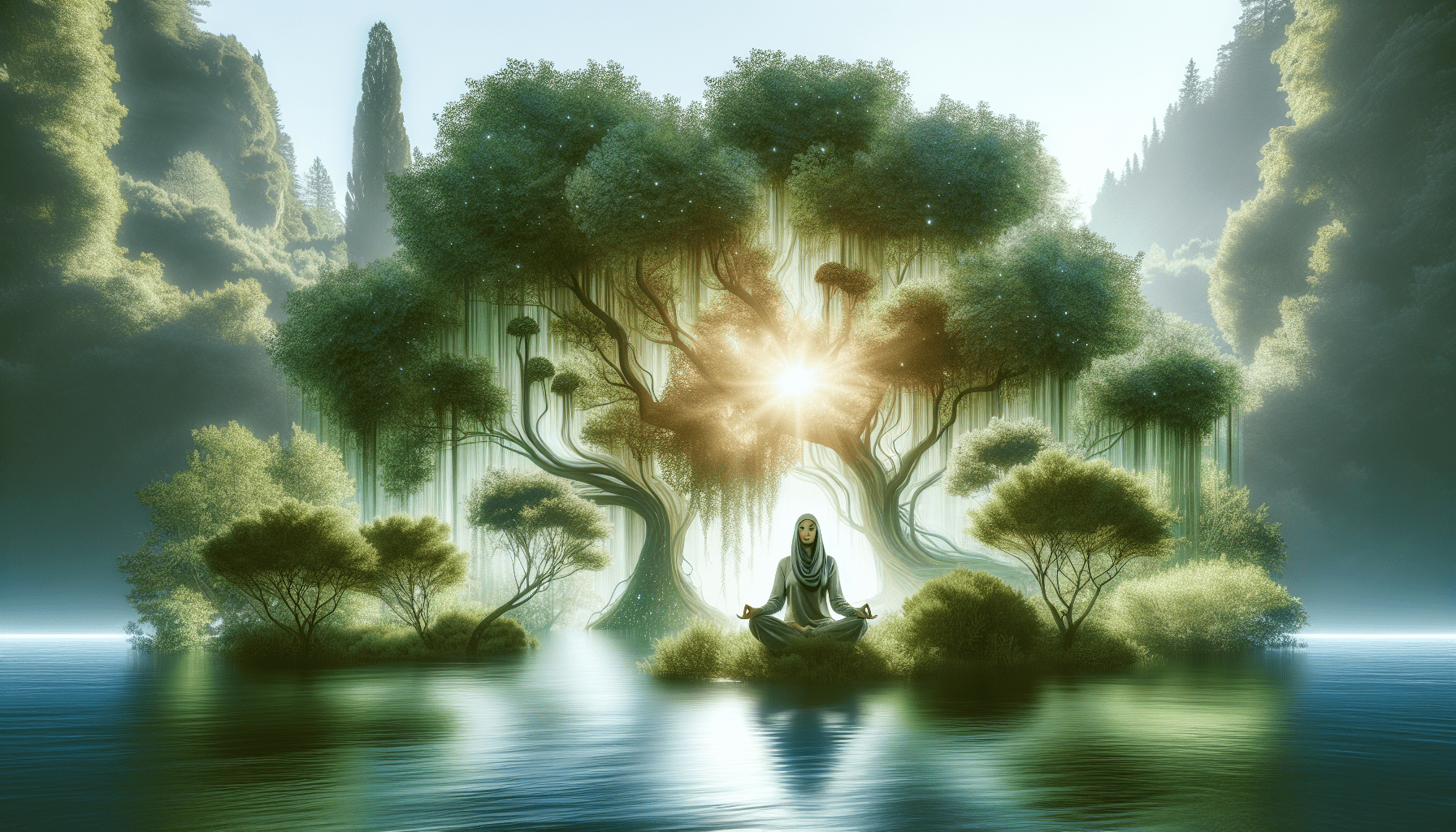Have you ever wondered how stress might be affecting your daily life and overall well-being? You’re not alone. Many people grapple with stress, recognizing its inevitable presence but not fully understanding how to manage it effectively. This is where mindfulness-based stress reduction (MBSR) programs come into play, providing valuable insights and tools to turn stress into an opportunity for positive change. Dive into the findings and experiences of Spanish psychologist Andrés Martín Asuero, whose recent book, “Blessed Stress,” offers a fresh perspective on stress management through mindfulness.
Stress Insight: Recognizing the Natural Reaction
Stress is a natural response of your body and mind to threats, serving as a crucial warning signal. This reaction is designed to protect you from immediate danger, triggering a ‘fight or flight’ response to help you cope with challenging situations. When you’re aware of stress as a natural occurrence, it becomes easier to understand and manage.
However, when stress becomes chronic, it can have adverse effects on your mental and physical health. Understanding the origins and symptoms of stress is the first step towards managing it effectively. Stress manifests in various ways, such as trouble sleeping, irritability, or physical symptoms like headaches and muscle tension. Recognizing these signs can help you address the root causes of your stress.
| Common Symptoms of Stress | Physical Symptoms | Emotional Symptoms |
|---|---|---|
| Headaches | Anxiety | |
| Muscle tension | Irritability | |
| Fatigue | Depression | |
| Insomnia | Feeling overwhelmed | |
| Gastrointestinal issues | Difficulty concentrating |
Views on Stress: Transforming Adversity into Opportunity
Interestingly, stress doesn’t always have to be viewed negatively. It can be transformed into an opportunity for growth and positive change if approached correctly. When you address stress with the right strategies, you can use it as a stepping stone to improve various aspects of your life.
For instance, spotting chronic stress can prompt you to make necessary life changes, whether in your work, relationships, or self-care routines. When properly managed, stress can push you to set healthier boundaries, prioritize your well-being, and adopt a more balanced lifestyle. It’s all about how you perceive and respond to stress, turning potential adversity into an opportunity for betterment.

Mindfulness-Based Stress Reduction (MBSR): A Pioneering Approach
Andrés Martín Asuero, a pioneer of the MBSR program in Spain for over two decades, encapsulates his practices and insights in his book “Blessed Stress.” The MBSR program incorporates mindfulness techniques that help individuals live more consciously and handle stress with greater efficacy. Mindfulness involves staying present in the moment, noticing your thoughts and sensations without judgment.
The Science Behind MBSR
Numerous scientific studies have highlighted the benefits of MBSR. Rigorous mindfulness training can reduce psychological distress by approximately 30%, significantly improving health, work productivity, and family relationships. This training involves an 8-week program where participants engage in daily mindfulness practices, both formally (e.g., meditation) and informally (e.g., being present during everyday activities).
| Benefit | Description |
|---|---|
| Reduced Psychological Distress | Approximately 30% reduction in stress-related symptoms |
| Improved Health | Better physical and mental well-being |
| Enhanced Work Performance | Greater focus, productivity, and job satisfaction |
| Stronger Family Relationships | Improved communication and emotional connections |
The 8-Week Program Structure
The MBSR program typically includes:
- Initial Orientation: Introduction to the principles and practices of MBSR.
- Weekly Sessions: Group meetings with guided meditations and discussions.
- Daily Home Practices: Formal meditation practices and mindfulness exercises.
- Mindfulness Practices: Activities focused on being present in the moment.
These components work synergistically, helping you cultivate mindfulness and integrate it into your daily life, enhancing your overall well-being.
Critique of Media: Navigating Unscientific Information
As information on stress management floods social media, it can sometimes be challenging to distinguish factual, scientifically backed data from misleading content. Asuero criticizes the propagation of unscientific and often sensationalized information circulating online.
To navigate this, it’s essential to rely on credible sources and evidence-based practices. For stress management, mindfulness is supported by extensive research and has stood the test of time as an effective strategy. Engaging in programs like MBSR ensures that the techniques you employ are rooted in scientific evidence, fostering genuine improvement in stress management and overall well-being.

Mindfulness Training: Substantial Benefits
Engaging in rigorous mindfulness training has shown to offer substantial benefits, including a notable 30% reduction in psychological distress. But what exactly is rigorous mindfulness training, and how does it work?
Components of Rigorous Mindfulness Training
Mindfulness training encompasses a variety of practices that focus on awareness and presence. These practices include:
- Mindful Breathing: Concentrating on your breath to anchor your awareness in the present moment.
- Body Scan Meditation: Focusing on different parts of your body to develop a deeper connection and understanding of physical sensations.
- Mindful Movement: Incorporating practices like yoga or walking meditation to enhance body-mind awareness.
- Loving-Kindness Meditation: Cultivating positive emotions towards oneself and others to foster compassion and emotional resilience.
- Mindful Eating: Paying complete attention to the experience of eating, engaging all your senses.
Engaging in these practices daily can profoundly affect your psychological and physical health, leading to a more balanced and stress-resilient life.
Improving Life Quality
These mindfulness practices contribute to an overall improvement in various areas of life, including:
- Health: Physical health benefits include reduced blood pressure, improved immune function, and better sleep patterns.
- Work: Enhanced concentration, decreased burnout, and improved work relationships and efficiency.
- Family: Strengthening family bonds through improved emotional regulation and communication.
Indicators of Harmful Stress: Recognizing the Warning Signals
Understanding when stress becomes harmful is crucial for taking timely action. Some clear indicators suggest that stress is impacting your life negatively. One significant sign is not recovering from stress during weekends. Even with time off, if stress persists, it can lead to more severe health issues.
Warning Signs of Harmful Stress
Be on the lookout for these indicators:
- Persisting Negative Mood: If feelings of anxiety, irritability, or depression linger even during supposed downtime.
- Strained Relationships: Increased conflicts or communication issues with loved ones can be a red flag.
- Physical Health Issues: Chronic stress can manifest in physical symptoms such as headaches, gastrointestinal issues, and muscle tension.
- Work Performance Decline: Finding it hard to concentrate, remember tasks, or feel motivated can indicate a serious stress problem.
Recognizing these signs can prompt you to seek effective stress management strategies before it leads to more significant issues.
Strategies for Managing Stress: Practical Approaches
Addressing stress requires a multifaceted approach that encompasses rest, healthy living, and introspection. Here are some practical strategies:
Rest and Relaxation
Ensuring you get adequate rest is fundamental. This means prioritizing sleep, taking breaks during work, and scheduling regular downtime.
Healthy Eating and Exercise
A balanced diet and regular exercise are vital in combating stress. Foods rich in vitamins and minerals can boost your mood, while physical activity helps clear your mind and improves overall health.
Spending Time with Loved Ones
Building and maintaining supportive relationships can provide a buffer against stress. Quality time with family and friends helps in sharing burdens and fostering a sense of connection.
Understanding the Root Causes
Mindfulness and therapy can be instrumental in uncovering the root causes of chronic stress. Through regular practice and professional guidance, you can develop a deeper understanding of what triggers your stress and how to manage it effectively.
Mindfulness Application: Formal and Informal Practices
Mindfulness isn’t confined to formal meditation sessions; it can also be practiced informally throughout your daily activities.
Formal Mindfulness Practices
Formal practices often involve scheduled sessions where you engage in activities like sitting meditation, body scans, and mindful yoga. These sessions are aimed at sharpening your focus and developing a deeper sense of awareness.
Informal Mindfulness Practices
Informally, mindfulness can be integrated into various routine activities. Whether it’s mindful eating, where you pay attention to the flavors and textures of your food, or mindful walking, where you notice the sensations in your feet and the world around you, integrating mindfulness into daily life can be incredibly beneficial.
| Mindfulness Practice | Formal Practice Examples | Informal Practice Examples |
|---|---|---|
| Meditation | Sitting meditation, guided meditations | Focused breathing during moments of stress |
| Body Awareness | Body scan meditation | Noticing physical sensations during everyday tasks |
| Physical Activities | Mindful yoga, tai chi | Paying attention to bodily movements while walking |
| Daily Activities | Structured mindfulness sessions | Being present while eating or doing chores |
MBSR Program Details: Structured Pathway to Stress Reduction
The MBSR program offers a structured pathway to managing stress. Comprising an 8-week curriculum, this program outlines specific practices and techniques, supported by scientific evidence, to cultivate mindfulness and reduce stress.
Program Components
- Orientation Session: Setting expectations and introducing mindfulness principles.
- Weekly Group Meetings: Engagement in guided meditation, group discussions, and problem-solving.
- Daily Practice: Commit to formal meditation practices and integrating mindfulness informally into daily life.
- Homework Assignments: Exercises and readings to reinforce learning.
- Follow-Up Sessions: Post-program meetings to consolidate gains and address ongoing challenges.
The Science Behind the Program
The effectiveness of the MBSR program is underpinned by research illustrating its impact on reducing stress, improving mental health, and enhancing overall quality of life. Participants report significant relief from stress-related symptoms and a more balanced approach to managing life’s challenges.
Advising Mindfulness: Prioritizing Important over Urgent
In our fast-paced world, it’s easy to feel overwhelmed with urgent tasks, sidelining what’s genuinely important. Prioritizing mindfulness ensures that important activities get the attention they deserve.
Identifying Priorities
Mindfulness encourages reflecting on your priorities and aligning your actions accordingly. By focusing on what’s genuinely important rather than what’s immediately demanding, you reduce impulsiveness and manage stress more effectively.
Implementing Mindfulness in Daily Life
To implement this, consider starting your day with a mindfulness practice, setting clear intentions, and periodically checking in with yourself to ensure your actions align with your priorities.
Emotional Management: Differentiating Emotions from Reactions
Emotional management is an essential component of mindfulness, helping you differentiate between your emotions and reactions. Stress can often trigger automatic, negative reactions to emotions like fear, anger, and sadness.
Developing Healthier Responses
Mindfulness helps create a space between feeling an emotion and reacting to it. This space allows for a more measured, appropriate response, fostering better emotional health.
Techniques for Emotional Regulation
- Pause and Breathe: When emotions run high, take a moment to pause and breathe, allowing yourself time to respond thoughtfully.
- Label Your Emotions: Identify and label your emotions without judgment. This recognition can reduce their intensity and help you manage them better.
- Practice Self-Compassion: Treat yourself with the same kindness and understanding as you would a friend facing similar emotions.
Conclusion: Embracing Mindfulness for Stress Management
Addressing stress is crucial for your overall well-being, and mindfulness offers effective, scientifically supported strategies to manage it. Andrés Martín Asuero’s insights, particularly through his pioneering work with the MBSR program, provide valuable tools to help you navigate stress and turn it into an opportunity for positive change.
By integrating mindfulness into your daily life, you can enhance your emotional and physical health, improve your relationships, and foster a more balanced approach to life’s challenges. Through formal and informal practices, mindfulness facilitates a deeper understanding of your stress triggers and helps you develop healthier responses.
Prioritizing important tasks over urgent ones, engaging in mindfulness training, and recognizing harmful stress indicators are all pivotal steps in managing stress effectively. With commitment and practice, you can harness the benefits of mindfulness to lead a healthier, more fulfilling life.






